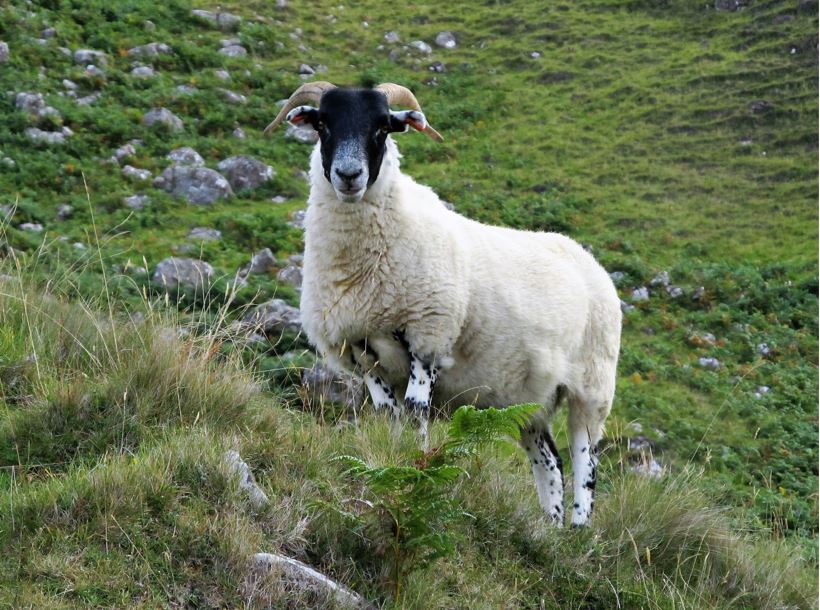How selective breeding will improve sheep resilience to climate change
Tuesday, 24 May 2022
A project to identify how sheep breeds are evolving to better cope with the challenges of climate change has been carried out as part of the joint AHDB and BBSRC Initiative: Enabling the agricultural transition to net-zero. The work was funded through BBSRC’s Farm Sustainability Fund and Professor Georgios Banos, from Scotland’s Rural College (SRUC) investigates whether selective breeding is the answer.
Climate change is occurring worldwide and is mainly manifested in changing air temperatures and increasing weather volatility. These changes are expected to intensify in the future posing a challenge and a threat to livestock production. Different animals are known to react differently to changing climatic and weather conditions, and part of these differences may be genetic. Therefore, breeding for enhanced animal resilience to climate change has been proposed as a possible mitigation strategy.
Building resilience
The aim of the project was to examine the genomic profile of climate resilience in sheep, with a focus on identifying the desirable genetic profile of animals whose performance and growth do not change because of changing weather.
Animal resilience phenotypes were previously developed for more than 5,000 Scottish Blackface lambs raised at the SRUC sheep research station. These records reflected changes in lamb growth profiles in response to changing weather (mostly air temperature). Development of resilience phenotypes on individual animals was proven to be a straightforward process based on the combination of data already available in livestock recording and improvement with public weather records.
In the present project, these phenotypic records were jointly analysed with available animal pedigree and genotypic data to examine the genomic background of climate resilience in sheep. Single-step genomic evaluation methodology was followed to best combine all sources of information available on different animals. Outcomes of the analysis included estimates of the genetic variance and heritability of the trait, the effect of genomic markers and regions, and estimated genomic breeding values (GEBVs) of animals.
Heritable traits
Our results showed that resilience is indeed a heritable trait with a heritability estimate of 0.11, which is along the lines of what is expected for fitness-related traits. Despite the modest magnitude of the heritability estimate, our study revealed the presence of substantial genetic variance for the trait and notable genomic differences among individual sheep regarding their capacity to cope with weather change. The feasibility of deriving genomic breeding values of individual animals for climate resilience was demonstrated. These GEBVs were of reasonably high accuracy and clearly distinguished between animals with inherently low and high resilience.
Certain genomic markers and regions associated with climate resilience were identified. Although neither any specific marker nor any specific region was responsible for substantial proportions of the genetic differences among animals, they can still be used to improve the accuracy of genomic predictions and selection. Relevant methodology is available for this, and future studies may address applications to genomic evaluations for resilience. Nevertheless, current state of knowledge provides strong evidence for this new trait to be included in the genetic improvement process.
What this tells us
In conclusion, while the industry should continue selectively breeding sheep from improved performance traits, such as production and health, it is now possible to also breed for enhanced stability of performance as climate and weather change. Outcomes from this work offer evidence on sufficient genetic variation and the feasibility to utilise genomic data to improve sheep resilience to climate change in future breeding programmes.


